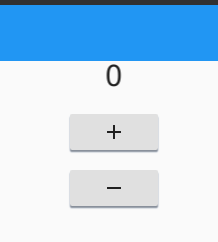Unity - UIWidgets 5. Redux接入(一) 基本接入
对响应式的数据组织结构不太熟, 直接尝试Redux走起
参考资料
Redux的基本概念
state 一个字段用于存储状态
存储state的地方称为"store", 类似Model\DataCenter等, 把所有数据(state)存进去(类似playerprefs), 不对外提供setter方法
实际类似一个全局存储字典, 但难点在于如何组织数据, 比如玩家背包里面N种道具要想办法合理的存进去, 还要方便维护
action 修改数据的指令
要修改state只能通过action. 这样的话通过跟踪action的日志可以很清晰的知道到底做了什么
reducer
把action和reducer连接起来, 实际相当于一个switch-case函数, 在复杂项目中把action划分为多个模块
和常见的MVC模式的对比
普通的MVC模式为每个不同的模块创建一个Model, 通过Controller管理, 优点是对象式存储比较符合直觉
Redux把所有数据存储到唯一一个state中, 通过action来发送指令, 优点是容易追踪操作
Redux的三个原则
- 单一数据源 - 整个应用的 state 被储存在一棵 object tree 中,并且这个 object tree 只存在于唯一一个 store 中。
- State 是只读的 - 唯一改变 state 的方法就是触发 action,action 是一个用于描述已发生事件的普通对象。
- 使用纯函数来执行修改 - 为了描述 action 如何改变 state tree ,你需要编写 reducers。
前两点上面已经说过, 主要说一下第三点
Reducer 只是一些纯函数,它接收先前的 state 和 action,并返回新的 state。刚开始你可以只有一个 reducer,随着应用变大,你可以把它拆成多个小的 reducers,分别独立地操作 state tree 的不同部分,因为 reducer 只是函数,你可以控制它们被调用的顺序,传入附加数据,甚至编写可复用的 reducer 来处理一些通用任务,如分页器。
这里它接收先前的 state 和 action,并返回新的 state, 第一个state指现在的状态参数, 第二个state指返回值
纯函数:
- 对于同一参数,返回同一结果
- 结果完全取决于传入的参数
- 不产生副作用
大概说来Reducer就是
public static Object SomeReducer(Object state, Action action)
{
// 对于static变量只使用get方法
switch (action.actionType)
{
case "SOME_ACTION":
//
state.foo = "bar";
// ... 通过某种方式划分到其他的reducer
}
return ...;
}
即假设小明现在14岁(state), 过完生日要加一岁(action), 之后获取最后的年龄结果(state), 伪代码类似这样SomeFunction(14, ["ADD_AGE", 1]) -> 15
redux的官方文档很好理解
function visibilityFilter(state = 'SHOW_ALL', action) {
//...
}
function todos(state = [], action) {
//...
}
import { combineReducers, createStore } from 'redux'
let reducer = combineReducers({ visibilityFilter, todos })
let store = createStore(reducer)
Redux的基本概念快速看了一遍, 但真正用起来怎么样, 又是另一回事了, 特别返回state这里, 还是很迷惑的
Redux接入
熟悉Redux的概念, 接下来就是接入Redux接口. 首先考虑一个简单的应用:
界面显示一个数, 有两个按钮, 一个把数字加一, 一个把数字减一, 类似UIWidgets给的示例
按照之前statefulwidget的写法, 是这样
using System.Collections.Generic;
using Unity.UIWidgets.material;
using Unity.UIWidgets.painting;
using Unity.UIWidgets.widgets;
namespace UI
{
public class HomeRoute : StatefulWidget
{
public override State createState()
{
return new HomeRouteState();
}
}
class HomeRouteState : State<HomeRoute>
{
private int m_Count = 0;
public override Widget build(BuildContext context)
{
Scaffold scaffold = new Scaffold(
appBar: new AppBar(
title: new Text("首页")
),
body: new Center(
child: new Column(
children: new List<Widget>
{
new Text(
data: m_Count.ToString(),
style: new TextStyle(
fontSize: 30
)
),
new Padding(padding: EdgeInsets.symmetric(10)),
new RaisedButton(
child: new Icon(Icons.add),
onPressed: () =>
{
setState(() =>
{
m_Count++;
});
}
),
new Padding(padding: EdgeInsets.symmetric(10)),
new RaisedButton(
child: new Icon(Icons.remove),
onPressed: () =>
{
setState(() =>
{
m_Count--;
});
}
),
}
)
)
);
return scaffold;
}
}
}

如果使用redux后, 把存储在控件中的m_Count移到全局的store中, 修改操作也通过action执行.
但首先需要接入redux
参考UIWidgets提供的示例"CounterAppSample.cs"
GlobalState.cs
namespace UI
{
public class GlobalState
{
public int Count { get; private set; }
public GlobalState(int count = 0)
{
Count = count;
}
}
}
Actions.cs
namespace UI
{
public class AddAction
{
public int amount;
}
public class RemoveAction
{
public int amount;
}
}
HomeRoute.cs
using System.Collections.Generic;
using Unity.UIWidgets;
using Unity.UIWidgets.material;
using Unity.UIWidgets.painting;
using Unity.UIWidgets.Redux;
using Unity.UIWidgets.widgets;
namespace UI
{
public class HomeRoute : StatelessWidget
{
public override Widget build(BuildContext context)
{
Store<GlobalState> store = new Store<GlobalState>(
reducer: Reducer,
initialState: new GlobalState()
);
return new StoreProvider<GlobalState>(store, GetWidget());
}
//因为Reducer签名问题, 参数为object, 可以修改源码"xxxuiwidgets\Runtime\redux\store.cs"自定义为IAction接口, 不推荐
public static GlobalState Reducer(GlobalState state, object action)
{
if (action is AddAction)
{
return new GlobalState(state.Count + ((AddAction)action).amount);
}
else if (action is RemoveAction)
{
return new GlobalState(state.Count - ((RemoveAction)action).amount);
}
else
{
// action不匹配时返回原state
return state;
}
}
private Widget GetWidget()
{
Scaffold scaffold = new Scaffold(
appBar: new AppBar(
title: new Text("首页")
),
body: new Center(
child: new Column(
children: new List<Widget>
{
new StoreConnector<GlobalState, string>(
converter: (state) => state.Count.ToString(),
builder: (context, text, dispatcher) => new Text(
data: text,
style: new TextStyle(
fontSize: 30
)
),
pure: true // 这个参数不知道干嘛用的
),
new Padding(padding: EdgeInsets.symmetric(10)),
new StoreConnector<GlobalState, object>(
converter: (state) => null,
builder: (context, _, dispatcher) => new RaisedButton(
child: new Icon(Icons.add),
onPressed: () =>
{
dispatcher.dispatch(new AddAction { amount = 1 });
}
),
pure: true
),
new Padding(padding: EdgeInsets.symmetric(10)),
new StoreConnector<GlobalState, object>(
converter: (state) => null,
builder: (context, _, dispatcher) => new RaisedButton(
child: new Icon(Icons.remove),
onPressed: () =>
{
dispatcher.dispatch(new RemoveAction { amount = 1 });
}
),
pure: true
),
}
)
)
);
return scaffold;
}
}
}
到现在产生的疑问
上面的代码运行起来没问题, 但在之前没完全理解的地方, 疑问出现了. 把state类起名为"GlobalState", 说明我是把这个看做存储所有全局状态的, 但参照reducer, 每次返回一个新的GlobalState类, 如果每次复制更新造成很大浪费, 似乎不太对
redux的文档中提到
注意 todos 依旧接收 state,但它变成了一个数组!现在 todoApp 只把需要更新的一部分 state 传给 todos 函数,todos 函数自己确定如何更新这部分数据。这就是所谓的 reducer 合成,它是开发 Redux 应用最基础的模式。
即有的地方是传state的一个部分过去的
function todoApp(state = initialState, action) {
switch (action.type) {
case SET_VISIBILITY_FILTER:
return Object.assign({}, state, {
visibilityFilter: action.filter
})
case ADD_TODO:
return Object.assign({}, state, {
todos: todos(state.todos, action) // 注意这里, 传递的是一个部分
})
case TOGGLE_TODO:
return Object.assign({}, state, {
todos: todos(state.todos, action)
})
default:
return state
}
}
在js这么搞没问题, 强类型的C#\UIWidgets中要怎么实现?





【推荐】国内首个AI IDE,深度理解中文开发场景,立即下载体验Trae
【推荐】编程新体验,更懂你的AI,立即体验豆包MarsCode编程助手
【推荐】抖音旗下AI助手豆包,你的智能百科全书,全免费不限次数
【推荐】轻量又高性能的 SSH 工具 IShell:AI 加持,快人一步
· 10年+ .NET Coder 心语,封装的思维:从隐藏、稳定开始理解其本质意义
· .NET Core 中如何实现缓存的预热?
· 从 HTTP 原因短语缺失研究 HTTP/2 和 HTTP/3 的设计差异
· AI与.NET技术实操系列:向量存储与相似性搜索在 .NET 中的实现
· 基于Microsoft.Extensions.AI核心库实现RAG应用
· TypeScript + Deepseek 打造卜卦网站:技术与玄学的结合
· 阿里巴巴 QwQ-32B真的超越了 DeepSeek R-1吗?
· 【译】Visual Studio 中新的强大生产力特性
· 10年+ .NET Coder 心语 ── 封装的思维:从隐藏、稳定开始理解其本质意义
· 【设计模式】告别冗长if-else语句:使用策略模式优化代码结构